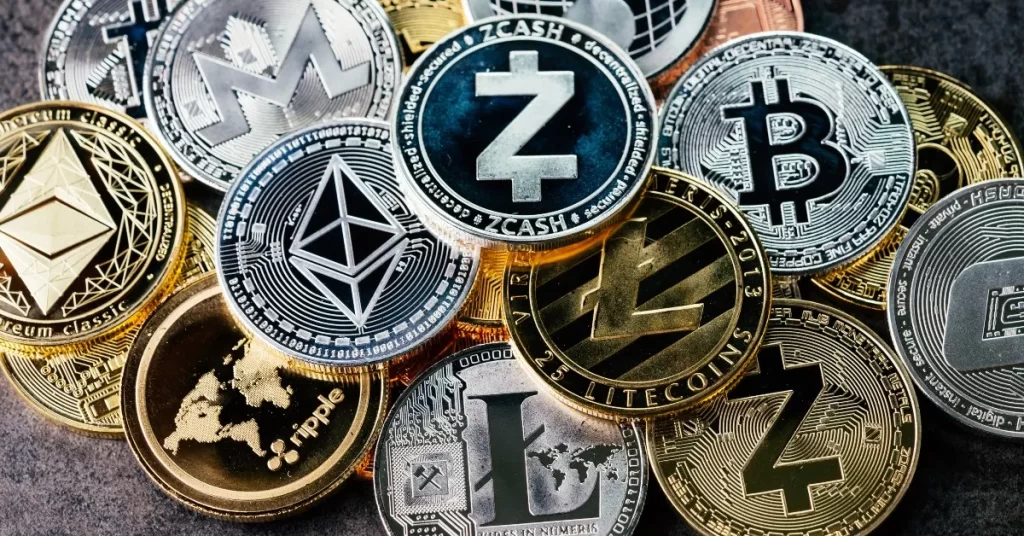Cryptocurrency is a complex phenomenon with serious implications for our financial futures that extend far beyond meme-crazed pop culture references. Therefore, taking the time to fully grasp this evolving field is well worth your while.
Cryptocurrencies are digital currencies that exist independently from banks and governments, using blockchain technology to create, trade, exchange and monitor its value.
Basics
Cryptocurrency is the world’s newest and fastest-growing medium of exchange. It allows people to transfer value globally in near-instantaneous transactions at minimal fees.
Blockchains use advanced coding to secure transactions and record them in public ledgers (like the internet), called blockchains. Since they do not require management from any central authority, they should theoretically remain free of manipulation or control by third parties.
Instead of being backed by physical assets like gold or paper bills, most cryptocurrencies rely on decentralized technology known as blockchain. Verified transactions are added to this ledger by individuals called miners; their work is then rewarded in form of cryptocurrency rewards. This process prevents fraud by providing an army of trusted verifiers who help verify transactions; it also allows users to trade one coin for another without middlemen such as banks or brokers stepping in the way.
Definitions
Digital currencies, like Bitcoin, provide an alternative way of exchanging value without banking intermediaries like banks and can be used for various purposes – this has led to their explosion in recent years.
Cryptocurrencies are usually decentralized digital currencies that use blockchain technology to record transactions. Their value derives from being issued without central authority oversight, making them immune from being altered or intervened with by governments or monetary authorities.
Virtual currencies exist solely as electronic data files and may be produced using advanced coding techniques. The United States Internal Revenue Service views cryptocurrencies and tokens as property, so any gains or losses on them are taxed as other capital assets.
Applications
Cryptocurrencies are digital assets traded over decentralized computer networks using virtual wallets and stored in public, tamper-proof ledgers called blockchains. Perhaps the best-known of these cryptocurrencies is Bitcoin, which has seen its value skyrocket and become the subject of widespread speculation.
People use cryptocurrencies to pay for goods and services not available through traditional payment methods like Paypal or bank transfers, as well as investing in companies accepting them or playing video games that reward players with crypto tokens.
Crypto’s meme-driven online culture may make it seem superficial and trivial, but it is part of an expansive ideological movement with potentially profound ramifications for our future. Policymakers are struggling with how best to regulate this emerging sector, seeking balance between protecting against financial risk while encouraging innovation.
Markets
Cryptocurrencies have recently generated considerable concerns for their cybersecurity and regulatory uncertainty, including their use in ransomware attacks by criminals as well as being used for illegal transactions such as money laundering and drug trafficking. Mining consumes enormous amounts of electricity posing environmental hazards.
But cryptocurrencies present unique opportunities to increase global economic freedom. Unlike traditional currencies, which must go through banks or credit card companies for exchange, cryptocurrencies can be transferred quickly and safely online without intermediary institutions such as banks. Furthermore, their global and borderless nature make them ideal for cross-border transactions. Cryptocurrencies may form part of a comprehensive investment portfolio but investors must first gain an understanding of the technology underlying cryptocurrencies as well as management risks before investing.
Wallets
A cryptocurrency wallet is software designed to securely store, track and manage cryptocurrency. A wallet provides users with an interface for sending and receiving coins easily – often QR codes or near field scanning technology are employed to make sending crypto easy.
A cryptocurrency wallet can either be connected to the internet (a “hot” wallet) or kept offline (“a cold wallet”). Hot wallets offer convenience but are vulnerable to hackers; cold wallets offer greater security but may be difficult to access.
Cryptocurrency can be an intimidating new world. But once you move past its carnival barkers and convoluted language, cryptocurrency becomes an engaging and thought-provoking space that could revolutionise how we think about money and power.


